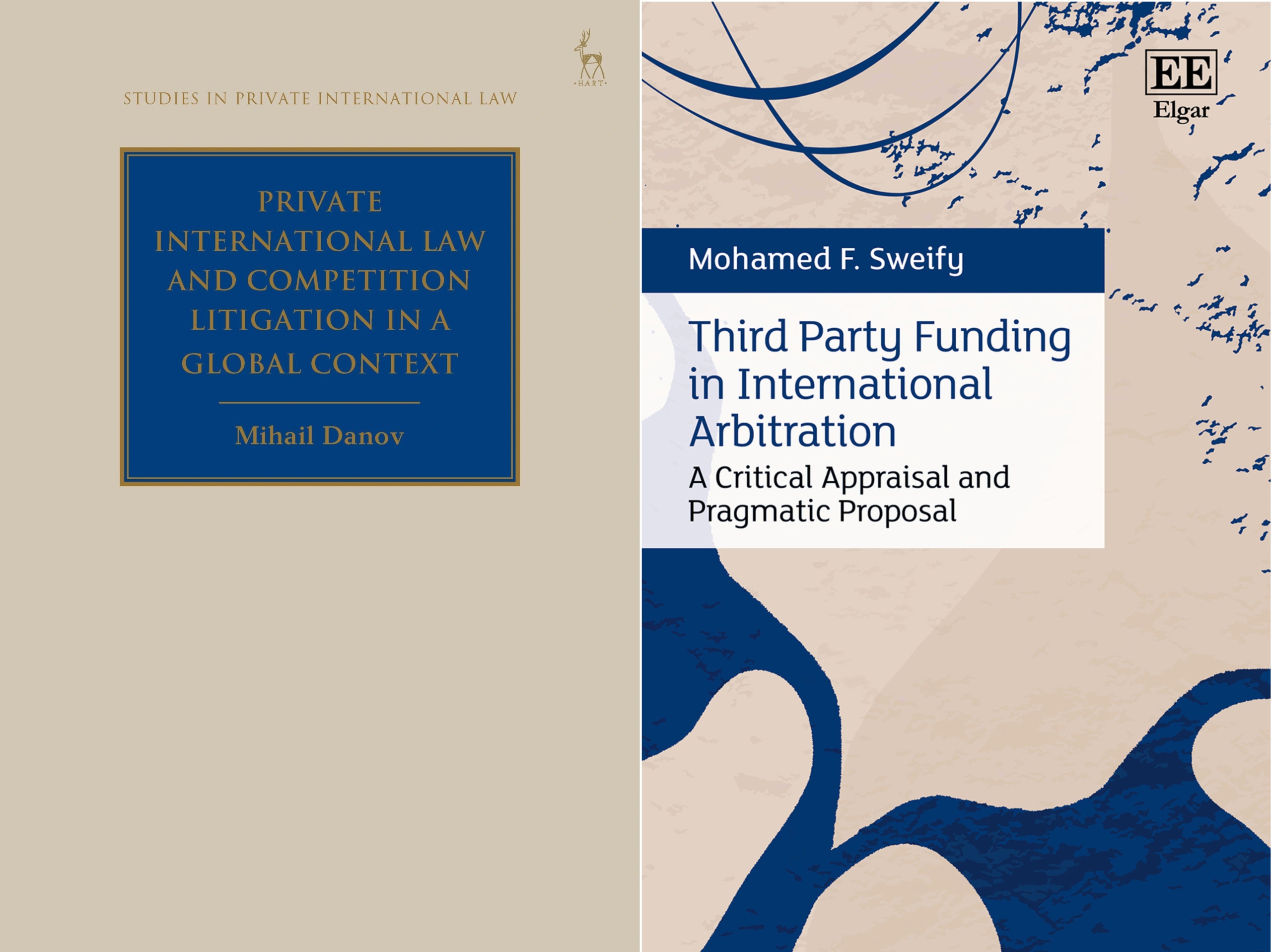New Book Releases: “Private International Law and Competition Litigation in a Global Context” & “Third Party Funding in International Arbitration”
Two books on international litigation and arbitration have recently been published that might be of interest to the CoL Community and PIL research.
The first book by Mihail Danov (University of Exeter) is the latest contribution to Hart’s renowned “Studies in Private International Law” series (Volume 37) and examines the challenging interaction of “Private International Law and Competition Litigation in a Global Context“. The blurb reads as follows:
This important book analyses the private international law issues regarding private antitrust damages claims which arise out of transnational competition law infringements. It identifies those problems that need to be considered by injured parties, defendants, judges and policy-makers when dealing with cross-border private antitrust damages claims in a global context. It considers the post Brexit landscape and the implications in cross border private proceedings before the English courts and suggests how the legal landscape should be developed. It also sets out how private international law techniques could play an increasingly important role in private antitrust enforcement.
For all interested conflict of laws.net readers, Hart Publishing is kindly offering a discount price of £76. If you order online at www.bloomsbury.com, just use the code GLR AQ7 to get 20% off!
In the second treatise, Mohamed F. Sweify (Hinshaw & Culbertson LLP) takes an in-depth look at the increasingly important issue of “Third Party Funding in International Arbitration“. Edward Elgar Publishing provides the following content description:
The author of Third Party Funding in International Arbitration challenges the structural inconsistencies of the current practices of arbitration funding by arguing that third party funding should be a forum of justice, rather than a forum of profit.
By looking at the premise, rather than the implication, the author presents the arcane areas of intersection between access to justice, as a foundational theory for third party funding, and the arbitration funding practice that lacks a unifying framework. The author introduces a new methodology with an alternative way of structuring third party funding to solve a set of practical problems generated by the risk of claim control by the funder.
This book will be of interest to third party funders, arbitrators, lawyers, arbitral institutions, academics, and law students.



